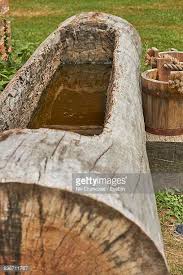The Pump Primer Who Invented Water and Trees and Logs and Pumps and Deep, Deep Thoughts a Couple of Days Ago
I used to dread hearing Grandpa Jacobson ask me to pump water for the cows. I should guess I was about ten at the time, and there were twenty or thirty cows and horses who needed water, who could drink it faster than I could pump it.
It was a log trough, and the pump stood at one end, directly over a shallow well at the edge of the swampy field. There was a plunger inside the "belly" of the pump, with a flap valve.
 Lifting the handle shoved the plunger down, lifting the flap valve, allowing water to flow up above the plunger. Pushing down on the handle dragged the plunger up again, at the same time causing the flap valve to flop down, keeping the water from escaping back down: out it ran, down a short run to the log trough, where the cows drank it faster than I could pump it.
Lifting the handle shoved the plunger down, lifting the flap valve, allowing water to flow up above the plunger. Pushing down on the handle dragged the plunger up again, at the same time causing the flap valve to flop down, keeping the water from escaping back down: out it ran, down a short run to the log trough, where the cows drank it faster than I could pump it.
Worst, when the cows were satisfied, I had to keep pumping until the trough was full. It was a big log; at that time of my life and size, possibly the biggest log in the world.
The space between the plunger and the pipe going down into the well was filled with a leather gasket: else all, or almost all, the water would run back down before it could be spilled into the trough. In warm weather, especially, the leather dried out and shrank just enough so that a partial vacuum could not be created to draw water up the pipe, so the pump had to be primed. That is to say, water had to be poured down into the pump to make the leather expand just enough to seal the space around the plunger.
A little water had to be poured in, in order to be able to get a lot of water out.
That was in about . . . let us say . . . 1942: seventy-five years ago.
A few days ago, Donald Trump, in an interview with The Economist, explained that he had just invented a new phrase to explain something about his fiscal policy: he was going to prime the pump.
It was a log trough, and the pump stood at one end, directly over a shallow well at the edge of the swampy field. There was a plunger inside the "belly" of the pump, with a flap valve.
Worst, when the cows were satisfied, I had to keep pumping until the trough was full. It was a big log; at that time of my life and size, possibly the biggest log in the world.
The space between the plunger and the pipe going down into the well was filled with a leather gasket: else all, or almost all, the water would run back down before it could be spilled into the trough. In warm weather, especially, the leather dried out and shrank just enough so that a partial vacuum could not be created to draw water up the pipe, so the pump had to be primed. That is to say, water had to be poured down into the pump to make the leather expand just enough to seal the space around the plunger.
A little water had to be poured in, in order to be able to get a lot of water out.
That was in about . . . let us say . . . 1942: seventy-five years ago.
A few days ago, Donald Trump, in an interview with The Economist, explained that he had just invented a new phrase to explain something about his fiscal policy: he was going to prime the pump.
TRUMP: We have to prime the pump.
ECONOMIST: It's very Keynesian.
TRUMP: We're the highest-taxed nation in the world. Have you heard that expression before, for this particular type of an event?
ECONOMIST: Priming the pump?
TRUMP: Yeah, have you heard it?
ECONOMIST: Yes.
TRUMP: Have you heard that expression used before? Because I haven't heard it. I mean, I just...I came up with it a couple of days ago and I thought it was good. It's what you have to do.

Comments
Post a Comment